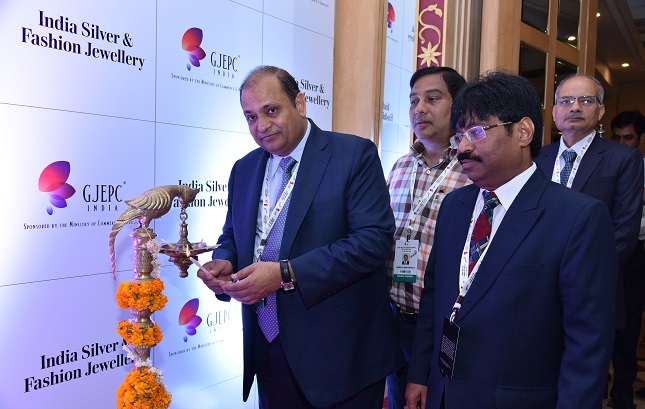GJEPC Chairman expresses concern about overall growth of the sector.
June 13, 19
GJEPC Chairman Pramod Agrawal spoke at the opening of the India Silver & Fashion Jewellery Buyer Seller Meet (BSM), in the pink city of Jaipur in Rajasthan, addressing some of India's gem and jewelry most pressing issues .
He reported that the GJEPC had been talking with the Indian government to address major banking issues affecting the gem and jewelry industry. Among the topics raised were the increase in cost of funds; the need for interest subvention; the dollarization of credit limits; the allowance of release of bank guarantees and cash margins of exporters after exports; the reintroduction of Export Credit Guarantee Corporation of India (ECGC) and Willingness to Pay (WTP) policy for the sector, as well as taxation Issues.
Earlier, Agrawal presented the industry's pre-budget proposals to Nirmala Sitharaman, the Minister of Finance.
Following are some of the points Agrawal addressed:
One of the burning issues of the industry is the imposition of the Integrated Goods and Service Tax (IGST) on returning goods that were exported as consignments or for the purpose of participation in international trade shows. Agrawal said the industry is hopeful that this issue will soon be resolved.
The reduction of import duties on polished diamonds from 7.5 percent to 2.5 percent. Due to certain data anomaly in the import figures of cut and polished diamonds, duties on polished diamonds were increased from 2.5 percent to 5 percent, and thereafter to 7.5 percent. The industry has repeatedly argued that returning consignments of polished diamonds constituted a major portion of the import figures which were erroneously captured and reported. As much as 93 percent of the imported polished diamonds were returns.
The reduction in import duties on gold from 10 percent to 4 percent. For a long time, the industry has asked the government to reduce the import duties on gold to a realistic level. Duty reduction will definitely re-initiate the flow of raw material through official channels into the country, thus strengthening Indian jewelry exports.
The introduction of a realistic turnover taxation regime for the Special Notified Zone (SNZ) in Mumbai. The SNZ was inaugurated in December 2015 and since then, the zone has been running successfully. The only, major hurdle is that foreign mining companies, in the absence of favorable taxation regime, have not yet started selling rough diamonds.
"They [the mining companies -ED] still come, display and take their goods back to their country." Agrawal said. "The industry has been requesting that on the lines of the level playing field being offered by Belgium, Israel, the UAE etc., the Indian government should introduce a presumptive turnover linked tax rate of 0.125 percent on the sale of rough diamonds at SNZ."